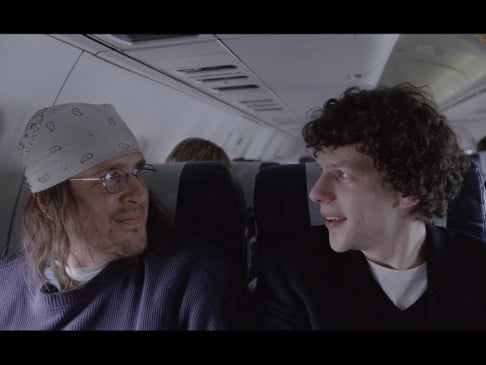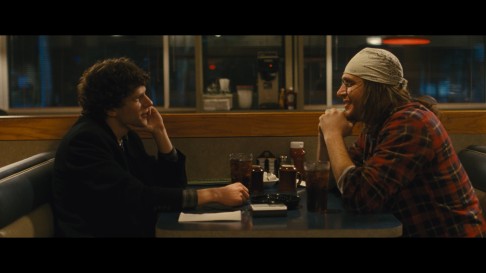
Jason Segel says reading David Foster Wallace was 'one of the best experiences of his life'
American actor stars with Jesse Eisenberg in The End of the Tour, about Wallace's interview with Rolling Stone journalist David Lipsky
Jason Segel might not be the first actor you'd think of to play David Foster Wallace, the quirkily brilliant Midwestern author of essays and expansive, inventive novels (of which the 1,100 plus-page tome is his masterpiece).
Segel, a handsome, soft-spoken 35-year-old Californian whose screen persona is generally that of a sensitive, gentle funnyman ( , , the TV series ), wouldn't disagree.
He remembers reading Donald Margulies' screenplay for , a dramatisation of five real days in Wallace's life, in which journalist David Lipsky joined the writer for the end of Wallace's book tour. Segel loved it, but thought: "I'll never get hired to do this."
A meeting with director James Ponsoldt (, ) convinced him otherwise. One of Ponsoldt's goals, Segel learned, was "to remember how funny [Wallace] was. That humour is the inroad to some of the weighty insights." A thoughtful actor who understood comedy, who could make the long conversations that make up the film spark to life, was what the director wanted.
Upon casting, Segel embarked on an intensive tour of his own: of Wallace. (The writer, who struggled with depression for many years, took his own life at the age of 46 in 2008.) Lipsky's interview tapes were available, and Segel studied them carefully, mostly "for tone", he says - "This road trip needed to be fun." He gained weight, grew out his hair and beard, talked to people who knew Wallace. And he dived into the writer's work, reading the essays on his own but tackling by forming a book club.
"We did 100 pages a week," Segel remembers, smiling. "It was one of the best experiences of my life."

The vast, experimental and thoroughly literary novel "is the most personal of [Wallace's] works - he's every one of the characters". Segel describes it as exploring themes of "pleasure, entertainment, achievement. It was David Foster Wallace trying to express a very fundamental crisis - we've been told that these things will satisfy us."
As an actor, he found a connection with Wallace by drawing on an aspect of the story that that he had some personal experience with: doing a press tour. "What is at the forefront of your mind is what you talk about on press tours," he says. "He [Wallace] was ready to talk about ."
Segel shares with Wallace a low-key modesty: asked if there was something he would have liked to ask Wallace, given the chance, he pauses for a long time and finally says: "I think I would be too scared to meet him." He saw the role as a possible turning point for his career.

"I'm getting older, thinking of different stuff. I needed to find a new relevance in the movies I was doing," he says, naming roles like Edward Norton in , Gary Oldman in , and most of all Peter Sellers in as inspirations.
Since premiered at the Sundance Film Festival early this year, Segel says he's seen an uptick in the number of interesting, not-necessarily-comedic scripts sent his way, but hasn't yet chosen his next role.
For now, he still has Wallace, and (the kind of book that "you make friends with, and have an intimate relationship with"), on his mind.
"I hope the movie is an extension of the themes that he expressed," Segel says. "It was approached with a lot of empathy and love."
The Seattle Times
opens on Oct 29
